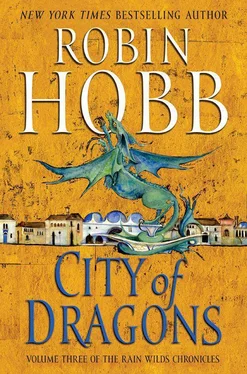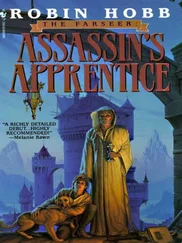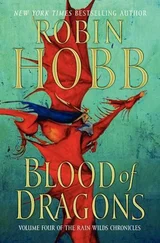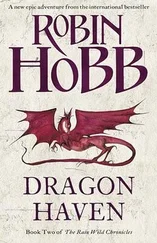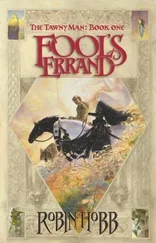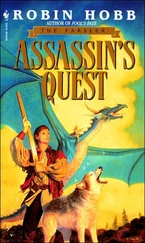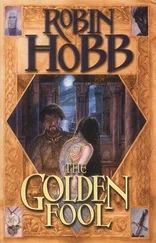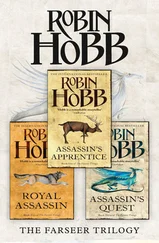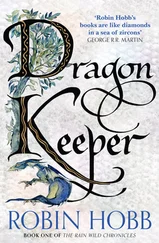Her most recent spouse had died three years ago. The worthy old man had publicly slapped her over some lapse of manners. He had died before the day was out, subsiding in a frothy fit at the feast table among his warriors. Again, Chassim had been returned to him. This time, he had asked her directly. “Daughter, do you mourn your husband?”
To which she had replied, “I mourn how suddenly and swiftly death found him.”
The Duke had made space for her among his own women, and she had made her own choice never to emerge from those chambers and their secluded gardens and baths. He knew of her life mostly from his concubines. She tended the herb gardens assiduously, read avariciously, mostly history and healing lore, wrote poetry, and practiced for an hour every day with her bow. She had expressed an ardent desire to never wed again.
Her wish had been granted, not by her father’s inclination, but by the reluctance of any noble male to make an offer for her. As the eldest of his legitimate daughters, she commanded a high bride-price despite her widowhood and advancing years. But he doubted the cost was what made suitors quail. Any woman thrice widowed might be suspected of witchery, even if no one dared broach such an accusation.
The Duke kept his own counsel on the matter. But he would not suffer her to come near him when he visited the women’s quarters, not that she had ever seemed so inclined. Nor did he eat anything that might have passed through her hands. There was no sense in taking chances. But now, as his chair swayed to the measured pacing of his bearers, he forced himself to consider her as an option.
By the oldest law of Chalced, a favored daughter might inherit, if a father so wished. He did not. But by those same old laws, if he died with no heir-son, his eldest daughter and her husband could rule until her first son came of age. If unwed, the daughter could rule until she found a worthy mate. He did not think Chassim would look very hard, if she were to inherit. In any case, her succession depended on his own death, something he was determined to avoid.
He did not think he could blame her for his prolonged illness. He had been far too careful for that. The greatest caution of all, of course, prescribed that he kill her. But a duchy with no heir at all was more prone to civil unrest than a duchy with an inappropriate one. How many of his nobles, he wondered, hoped that he would live simply to avoid the possibility of Duchess Chassim coming to power over them?
Besides, it was the worst sort of bad luck to kill a witch, even more so if she was his daughter.
He had closed his eyes to the swaying of his palanquin. He opened them now as his bearers’ pace slowed. The curtains remained closed as his pole chair was lowered onto a set of rests. He listened to the soft scuff of their boots as his bearers departed. But what he did not hear was what alarmed him: no play of waters in a multitude of fountains, no chirping of caged songbirds. He smelled no waft of flowers. The sound of his own heartbeat began to fill his ears. With bony fingers, he groped inside one of his cushions to find the sheathed dagger it concealed. He pulled it out and silently bared it. It weighed heavy in his hand. He wondered if he would have the strength to wield it effectively. He did not wish to die with an unbloodied blade in his hand.
“Most gracious Duke.”
It was Chancellor Ellik’s voice. Of course. He would be the traitor. His most intimate and trusted adviser was the man in the best position to murder him and seize the reins of power. The Duke was only surprised that he had not acted years ago, when he had first fallen ill. He did not respond to the man’s voice. Let him believe his lord had dozed off. Let him come close enough to open the curtains and meet his blade.
As if he could see through the curtains to the heart of the Duke’s intent, the chancellor spoke again. “My lord, this is not treachery. I have but stolen this moment to speak to you privately. I approach to open your curtains. Please, do not slay me.”
“Flattery.” The Duke spoke the word flatly but held the dagger in both hands before his chest. If he glimpsed treachery, he would do his best to plunge it into the man’s heart.
But the chancellor was on his knees and empty-handed as he carefully drew the cloaking curtains back. The Duke surveyed him as he knelt, neck bent and bare, before the parted curtains. If he had wished to do so, he could have planted his dagger in that vulnerable neck. He did not.
“Why privately?” he demanded. “You have always had my ear. Why here and now?” He looked suspiciously about the chancellor’s own comfortable chambers.
“You do, indeed, my gracious one, always grant me your ear. But where you listen, others listen as well. And I would warn you of treachery and have only you hear my warning.”
“Treachery?” The word was dry on his tongue. The pounding of his heart was becoming painful. Too many threats in too short a time; courage alone could not sustain a weakened body. He looked down at the man still kneeling before him. “Get up, Ellik. I need water. Please.”
The chancellor lifted his eyes and then his head. “Of course.” Without ceremony, he stood and walked across the chamber. It was a man’s room, hung with weaponry and tapestries that recalled famous battles. The work-scarred table in the center of the room held a large ledger, a pot of ink, and a scatter of pens. The Duke had not been in the chancellor’s study for years, but it had changed little in that time. Beyond the table was a cupboard. Ellik took a bottle of wine and glasses from it. “This will do you better than water,” he informed the Duke. With adroit efficiency, he pulled the cork and filled the glasses. As he returned, he walked as a warrior would and presented the glass without formality.
The Duke took it in withered hands and drained off the wine. He felt welcome warmth course through his body. Without asking, Ellik refilled the glass from the bottle he still held. Then he sat down cross-legged on the floor by the pole chair as easily as if he were a young man settling down by a campfire. “Hello,” he said, as if they were old two friends come together in a chance meeting. And perhaps they were. Ellik watched the Duke steadily until he spoke.
“You know why it’s necessary. The bowing, the formality, the harsh order. It’s not to demean you, Ellik. It’s to enforce discipline and maintain distance.”
“So they only think of you as the Duke,” Ellik said.
“Yes.”
“Because if they thought of you as a man among them, you are not the man they would choose to follow now.”
The Duke hesitated. “Yes,” he admitted finally. “A harsh evaluation, but an accurate one.”
“And it works,” Ellik conceded. “For most of them. For those young enough not to question the order. It works not so well for your old comrades who warriored beside you in the early days when you were coming to power.”
“But not many of them are left,” the Duke pointed out.
“That is true, but a few of us remain.”
The Duke nodded gravely.
“And a few of us remain loyal to the man you were, as well as to the present Duke of Chalced. And so I have come to warn you of treachery, though the nature of the warning may cost me my life.”
“And so I listen to you, Ellik, man to man, warrior to warrior, knowing what you risk to serve me. Be brief. What treachery threatens me?”
Ellik tossed his wine back, considered a moment longer, and then replied, “Your daughter Chassim. She wants your throne.”
“Chassim?” The Duke shook his weary head, annoyed that the man had discomforted him just for this. “She is discontented, widowed thrice, a woman unfulfilled. I have known this for years. I have no fear that she has any ambitions of her own.”
Читать дальше
